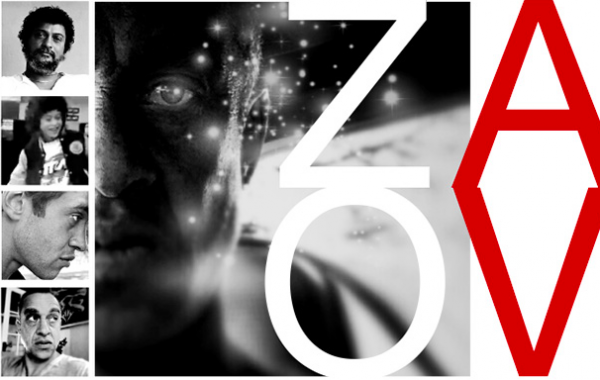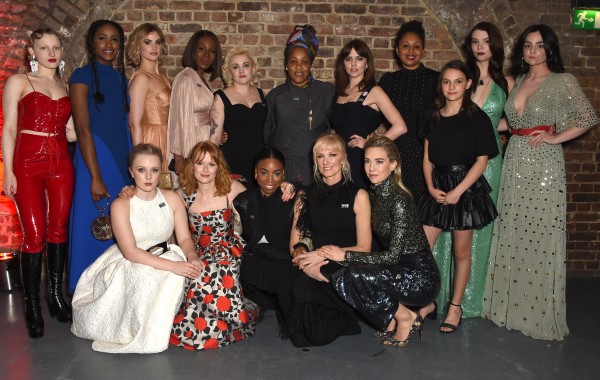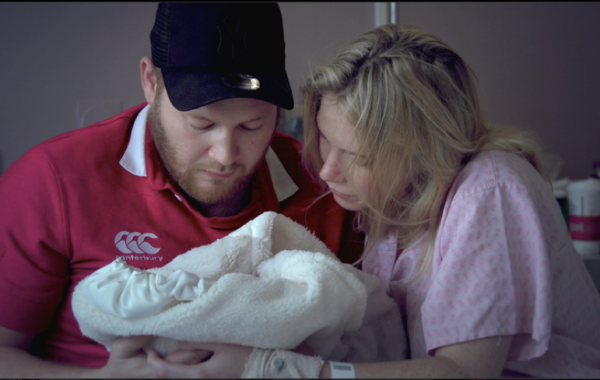362 days of Duet
Ben / Leeds
Duet is coming to a close. 368 individual questions, shared with a 1,000+ people across two continents and over 23,000+ messages exchanged over the course of a year.
It began over two years ago and was the result of a lot of iterations, research and back and forths between our studios in India and the UK. In many ways the process of bringing it to life ended up being something similar to the experience itself.
Duet is a lot of things at once for me, and I would imagine is many more things for its other creators and many users. Rather than simply exploring notions of success, I want to explore what it has meant to make this work, how generative meaning emerges in open user based experiences such as Duet and also what working across 5052 miles affords to a work.
Early on Duet was supposed to be SMS based, partly driven by a desire to explore old technologies for communication rather than rushing headlong into the space of innovation, at the expense of perhaps some more fundamental methods of communication - words. Primarily there was a desire to somehow collapse distance, both geographic and cultural. Can a simple exchange of words bring us closer to someone living their life on the other side of the world? Why is that an important thing to do? How much should we be able to say? How much or little should it feel like other messaging services? Will people get frustrated? Can we send pictures? Sounds? The process sat in that most interesting of places of digital art and design where it constantly bleeds back and forth across definitions, and functions; we inherited language and techniques from the commercial world of app development and sat it alongside post-its about psycho-geography and emotional arcs, conversations around user journeys and profiles punctuated by reflections on the ultimate zen-like experience of Duet.
In the end Duet is simple- a conversation, a slow, throttled, curated conversation, lots of them happening at once, some long, some short and some that never even got started. It posed some fundamental questions to me about how we communicate in the digital space and our relationship to others. Through a series of back and forth between us (Invisible Flock) here in the UK and Quicksand in India we want to explore Duet as a process, and experience and what we have learnt and discovered along the way.
In the spirit of questions and answers-
What is it about the use of words that felt so important?
Romit / Bangalore
Words are thoughts. Most of the thinking we do is in words and sentences. An inability to articulate is perhaps also an inability to think. Before we go any further, a personal story about emojis. As far as I am concerned Emojis did not just explode into existence. Slowly (relatively) but surely I have seen emojis seep into every aspect of conversation around me. A few years ago, no one saw emojis as any kind of threat - they were just something kids would do. Frankly, I never liked emojis and in the beginning I religiously avoided them. On principle, I suppose you could call it. But there was no principle, there was just this dislike towards emojis. When I think about it now, it seems like I didn’t want to let my guard down. First you misspell words to write them quicker (quickr), then you use emojis to avoid typing them at all. Where does it all stop? My guess is that we are all asking ourselves this question now.
There is no denying that what many would call mainstream public discourse has become more polarised. Perhaps to a point where it seems there is no point in talking at all. If what you are going to say is already known then the value of your speech is in the delivery - such things as the wit with which you choose your words (a pun perhaps) or the creativity of your sentence construction, or if you are at the Oscars, what you are wearing. In this kind of environment, it is completely understandable that emojis, gifs and their tribe have become important ways to converse. In fact a lot of what we consider conversation can hardly be classified as such. Conversations have always implied certain flux - they could go one way or another - someone could change their mind - conversations could develop into arguments or lead to the articulation of new ideas. In other words - conversations tend to have a sense of unpredictability. An unpredictability that is intrinsic to the nature of the act itself - the act of conversing. I would argue that this unpredictability owes everything to the medium of conversations - words and sentences. Emojis and gifs (and snapchats?) do not possess the nuance and flexibility of full fledged language and this should surprise no-one. What is interesting is that even people who are well read and articulate are voluntarily abandoning this nuance and flexibility for a simplistic lexicon that narrows, very strongly, the channels of human exchange. It is very hard - though many try, I am sure - to argue with emojis. It requires far more imagination and dedication to write a poem to a loved one than to send them a string of emojis. The tribe of emojis and gifs are in many ways isolating us as humans by limiting the depth of exchange we can have with others.
So words are everything. If I were to hazard a guess, I would say that the extreme polarisation in the public discourse is very closely linked to the rise of emojis. We are experiencing nothing less than a failure of language. And a failure of language is a failure of politics, of religion, of economics and society. Duet is not going to solve this problem. But Duet nudges its participants to rediscover their (our) language. To sit and frame a response to your partner - whom you have never met - with whom you have nothing to agree or disagree about - whose responses are largely unpredictable. Duet is a conversation; it is an unpredictable, unmediated exchange of words between two humans. In some ways, we hope, it allows for a set of broad conversations that people are unable to have anymore, even with those who are close to them.
So, why was anonymity so essential?
Victoria / Leeds
I think Duet is as much about your answers to the questions as it is about reading your partners. Anonymity gives us a chance to express ourselves outside of how we think people perceive us; we can learn a lot about ourselves and our true feelings when these aren’t surrounded by our usual identities, people who know us or even our names. I've learnt a great deal about myself doing Duet - reading back through my years worth of answers on some days it doesn’t really sound like me, not even how I imagine that I write. It is a fictional snapshot of how I felt that day, but maybe this is more who I am than who I think I am. I can see a sort of 100 different versions of my personality play out in Duet, some of them probably more recognisable, that my friends would guess was me and some that seem written by some stranger who I don’t really know all that well, who I probably need to pay more attention to.
Anonymity allows us the ability to say whatever we want. It an obvious point that sometimes it's easier to be honest with a stranger than it is with people who know and love you. It is a freedom to be able to state things that you can’t really state out loud in real life, to just put down what you feel in that moment, without judgement, without more questions following, without someone worrying about you or laughing.
I have had several partners over the year. One I knew a lot about- her name, her city, her job, her relationships, her age- I started to feel like I wanted to mother her, and then she dropped off the radar and my Duet experience moved on. We would never meet and for both of us this probably made the short relationship we had more intimate. I have had other partners reveal some harrowing stories about their past, to which I didn’t reference further with them, because I think it's not always about opening up a conversation, it is just about recording something that needed saying, out loud, for yourself.
What was your most interesting Duet relationship?
Babitha / Bangalore
Unlike several others I know who have been actively participating in Duet and have had fairly long partnerships, I have had a number of partners (upwards of 15 maybe) over the course of my Duet journey. None of these partnerships have been too long either. But most of them have been interesting for sure. While on one hand I missed the intimate connection that many friends participating in Duet seem to have had with long-standing partnerships, I have enjoyed ‘meeting’ many different people and dipping in and out of the Duet experience with them.
One of my longest partnerships was with a woman, who I guess is close to me in age. What was particularly interesting was that her responses to questions were very different from mine, especially when it came to things that we derived personal joy from. While I might have been more judgemental about these things with a person I was personally acquainted with, I found my willingness to suspend judgement interesting, in how I was interested in her responses, because through her I was able to consider a way of life that was drastically different from my own. And I found myself also reflecting on my own responses, without altering them, and what she might think of me- did she think I was weird, bizarre, curious, or just different because I was from a different culture?
This aspect of Duet has been crucially interesting to me. The nature of relationships and conversations in our increasingly technology-driven world is something that I have found very interesting. In real life, being able to share a drink with someone, or walk over to their home, allows for social and political differences to be kept aside from time to time and we can often engage in conversation, debates and arguments, building on common ground that we may already share- though of course, we can argue that this is increasingly diminishing. However through the reality of a screen, this becomes a lot harder. Despite the apparent ease with which we can share across borders and affiliations through social media, the reality is that arguments in the virtual space tend to become direct challenges. It is easy to oppose and even shut out people with opposing viewpoints, leading to our world-views becoming limited and often reinforcing our existing beliefs, muting opposing thoughts and beliefs. It is very hard to build a truly diverse, respectful network when it comes to social media and technology, especially if one were to engage with people within these networks only virtually. And this is further exacerbated by our shortening attention spans.
In light of this, it was interesting to engage with another person (who I had no control in selecting) purely virtually and through the filter of curated questions. It forced me to park my prejudices and look at my partner’s one answer a day with curiosity and openness. This in itself has made me a slightly more open person I think.
What has it been like to take the experience of Duet out into the world through the public artwork?
Catherine / Leeds The public artwork has taken a number of different forms; a large wall mounted, internet connected light installation running throughout the year, a smaller free standing light and text sculpture and an interactive, locative, sound installation, experienced individually via headphones. The Public art work had the objective of taking the intimate one to one conversations from the mobile phone and exploding them out into a public space while retaining anonymity. This act takes the words exchanged and magnifies them, inviting audiences to be momentarily included within a confidential space built by strangers sharing details of their lives. Both light installations focus upon the answers provided, creating a game for the ‘voyeur’ of deciphering the question originally asked. This focus in addition to the randomised pulling of answers from the database builds a type of surreal, free form, data driven poetry. The sculpture itself takes on the personality of each response, slowly shifting from single word answers to revealed secrets. Without the seeming authority of Duet’s influence in posing the question, the participants, their relationships with one another and their surroundings are brought to the fore. The public artworks take away the influence of time, removing the context of a daily question, creating a shared archive. The parameters of a space we are used to understanding is redistributed to a new public audience and in doing so the sense of collective experience is intensified. The act of pulling away from the screen, of viewing from a new position creates a new space for reflection, another layer of understanding of the journeys we take personally, culturally and socially on a daily basis. This additional dimension of the work has allowed us to cement the objectives of the original idea and explore thematics outside of the app focused world of the work. It has allowed us to share the work with a much wider audience and it has allowed for an additional level of engagement. The public artworks create the opportunity for the archive to live beyond the app; both elements can be presented autonomously now that the year has been completed, articulating the stories and connections built between the two countries. What do you think has been the biggest challenge in creating a project such as Duet? Kevin / Bangalore It’s difficult to arrive at a single challenge that stands out as the most significant for an undertaking such as Duet. On one side, there are certainly technical challenges with respect to ensuring the privacy of participants, keeping the interface running smoothly, and collecting and harnessing user inputs in a meaningful manner; another side is really around keeping people involved through provocative questions that also take into consideration socio-cultural sensitivities such that people stay engaged whilst avoid offense and the like; and then there is the sheer scale of the engagement: hundreds of participants, thousands of miles away, over a full year. Duet was a whole lot, all at once and remained so for 365 days of our lives! For me personally, the primary challenge was making time and space for the initiative. I think this is a broader commentary on the state of the world we live in today, where an avalanche of information overwhelms daily, career responsibilities have expanded exponentially, social media commands more and more of our time as “likes” become an ever-greater currency, and the pressure to create, share, evolve, and improve is unavoidable. As a very small example, as I write this, messages are piling in via email, Slack, WhatsApp, text messages, and instant messaging; I’m double-booked for meetings, and deadlines loom. Simply trying to tread water in such an environment is very real and poignant. Broadly speaking, this is the beauty of what Duet was trying to accomplish: to carve out space and time to withdraw to a certain extent from this torrent of stimuli and reflect on something with someone; to bridge a literal and figurative gap to find solace through connection, calm via a shared experience, and a bit of validation in sharing with a stranger an at-times very intimate bit of ourselves. Maintaining one’s trajectory in a world that’s constantly pushing and pulling is inordinately difficult at times; there is always a voice in the back of one’s mind whispering (hell, even shouting sometimes!) to pare down, ease back, relax. It is in these times that flipping a challenge on its head and viewing it as an opportunity becomes vitally important. For me, and in the interest of full disclosure, I was not as actively engaged in Duet as my compatriots, it were the opportunities inherent in an undertaking like Duet that piqued and kept my interest. Broadly, it allowed me to work with some incredible, creative people, which is in and of itself of tremendous value. Much more than this, though, it was the opportunity to contribute towards creating a platform for connecting people that helped maintain personal momentum. In a space and time so divisive, where hatred is fomented and celebrated on national levels throughout the globe, being able to bring some levity and light into the world proved a necessary salve. It’s remarkable to think Duet has just completed a year. Again, it was challenging for a variety of reasons. It meant adding responsibilities and effort to an already seemingly full plate, committing to something for an almost absurd length of time relative to other personal and professional pursuits, and at times baring my soul to complete strangers. As with any great challenge, though, its payoff far outweighed the effort required. If anything, the next time around, I hope to be even more heavily involved! DUET is the result of two years’ creative collaboration between UK interactive art studio Invisible Flock, and Indian research and design lab, Quicksand
Featured Work

Zak Ové
View Details
TIME’S UP UK
View Details
Channel 4
View Details



